What are the best dairy-free milk alternatives?
Your ultimate guide to dairy alternatives that are good enough to pour into your glass—and your coffee.
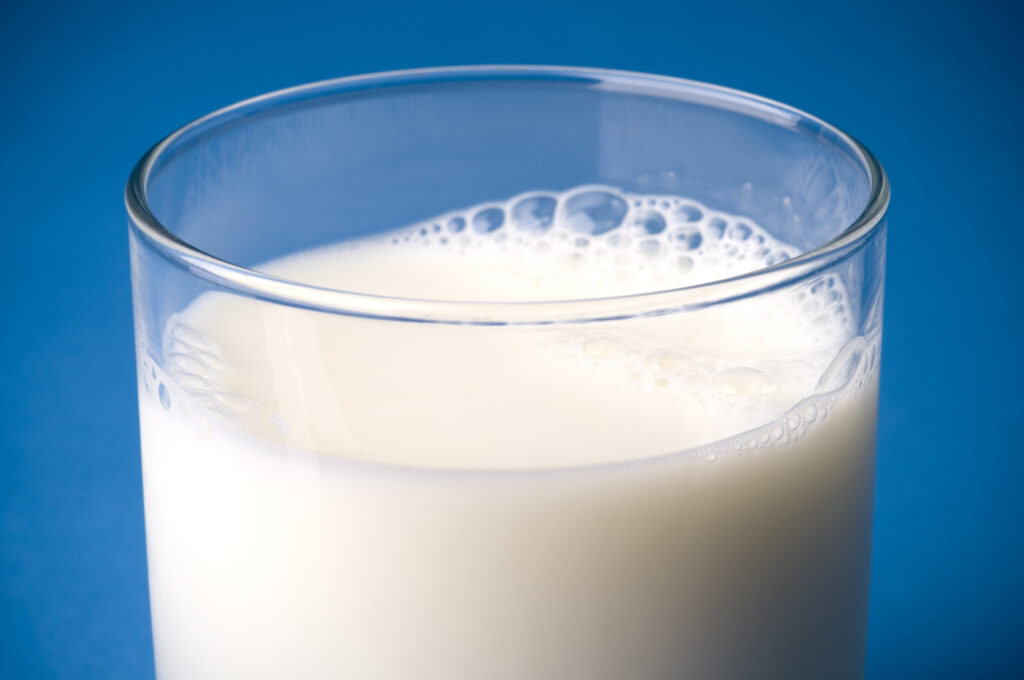
SOY, PEA, ALMOND, cashew, potato, oat, hemp, peanut, lactose-free, coconut, rice, flax, pistachio, banana, “plant,” hazelnut, quinoa, and probably many more – yep, there are A LOT of dairy-free milk options out there. But it doesn’t end there: within each of these styles of non-dairy milk alternatives, there exists several brands each marketing that they’re somehow better for you than whatever the competitors offer. Overwhelming, right?
Dairy-free milk alternatives have gone through an absolute boom over the last five years (a report back in 2019 by The Business Research Company predicted that the global milk substitutes market, which was valued at about USD 17.7 billion in 2018, was expected to grow to USD 27.17 billion at an annual growth rate of 11.3 percent through 2022). Whether thanks to the rise of veganism, concerns over sustainability, or and a drive for lactose-and cholesterol-free options, long-life milk aisles have never been so overwhelming.
So to help you make some sense of it all, and choose what might be the best option for you, here is our ultimate guide to some of the more prominent dairy-free milk alternatives (except for you, potato milk).
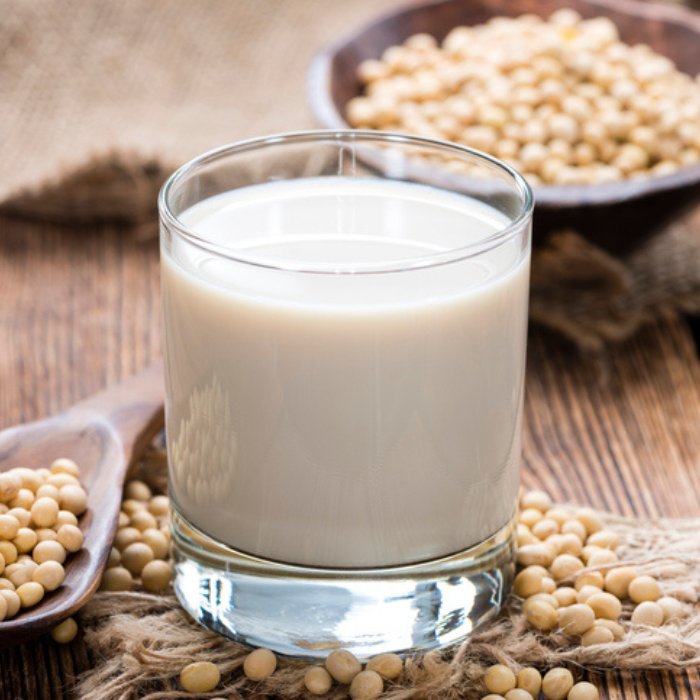
Soy Milk
Probably the most popular of the lot, soy milk is produced by soaking and grinding soybeans, boiling the mixture, and filtering out remaining particulates. While it’s had a bad rep in the past, due to unfounded fears around man boobs (we now know this to be BS — a man’s testosterone levels will not be affected by drinking a moderate amount of this plant-based drink), it’s actually the best choice of all the dairy-free milk alternatives when it comes to high-quality, plant-based protein (with approximately 3.3g per 100ml, which is in line with cow’s milk) — good news for those wanting to increase muscle mass.
It is important to keep in mind that soy is an allergen so won’t be appropriate for everyone.
Esquire’s pick: Bonsoy Long Life Soy Milk
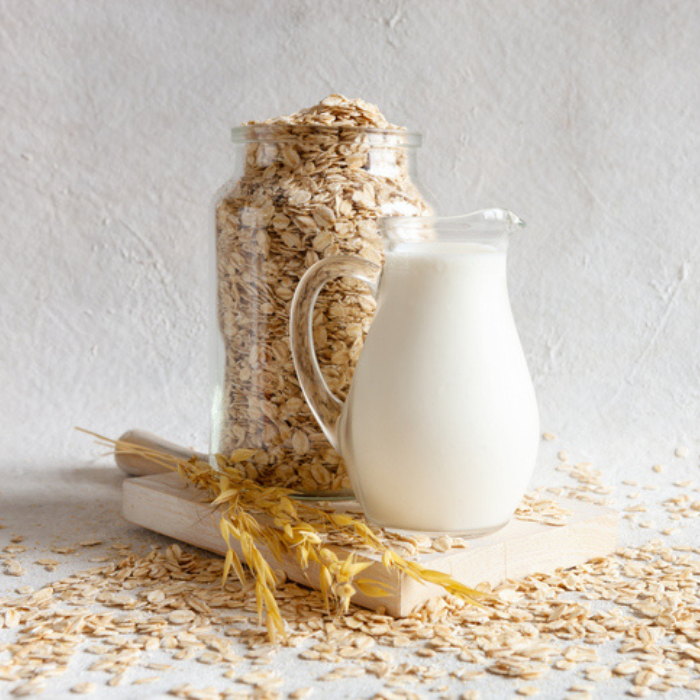
Oat Milk
Like the name suggests, Oat milk is a plant milk derived from whole oat grains by extracting the plant material with water. Studies have shown that oat milk contains a good quantity of fatty acids, protein, minerals, vitamins, dietary fibre, and a variety of micronutrients and provides several health benefits, as it reduces blood sugar and lowers cholesterol.
While the most popular brands are often fortified with nutrients such as vitamin D, B2, B12 and calcium, however those that aren’t tend to have a pretty poor nutrient profile-so choosing a good quality oat milk is key. If you’re looking for a protein fix, however, you’re not going to find it here. Unlike soya milk, oat milk contains just 0.2g of protein per 100ml.
Esquire’s pick: Minor Figures Minor Figures Barista Oat Uht Organic Milk
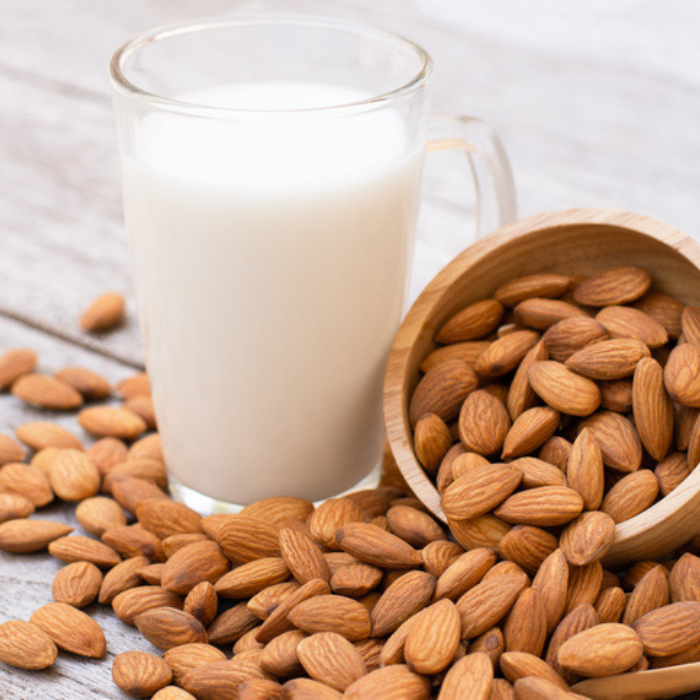
Almond Milk
The most nutty-tasting of the lot, almond milk is made in a similar way to soy milk where the almonds are soaked, drained and blended.
Almond milk is said to be low in calories (about 35 calories per average serving) and contains monounsaturated fatty acids, making it a great option if you’re looking to lose weight. Almond milk however contains very little protein, coming in at just 1 gram per serving.
Esquire’s pick: Pureharvest Almond Milk
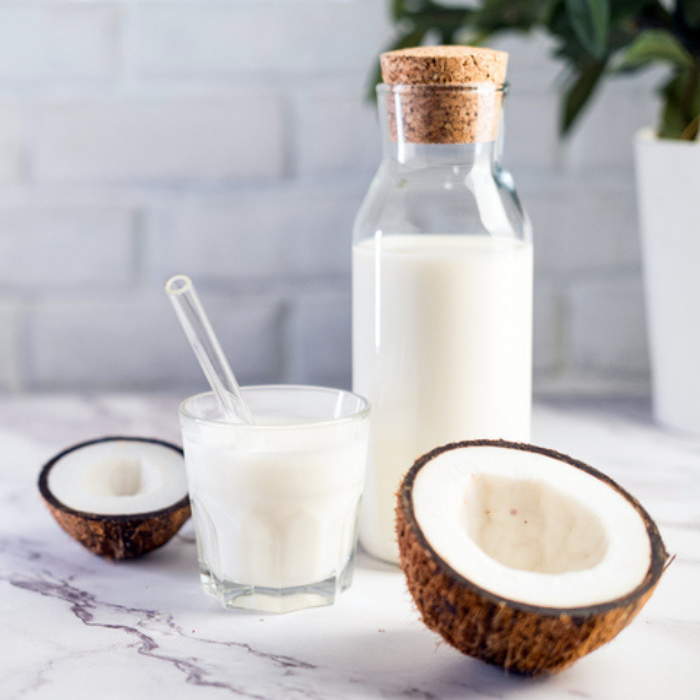
Coconut Milk
One of the more intense options comes in the form of coconut milk which is super rich tasting and quite creamy. It’s made from the milky-white liquid extracted from the grated pulp of mature coconuts and tastes quite sweet, offering very few calories at just 45 per average serving. Coconut milk however contains no protein and most of its calories come from fat.
Esquire’s pick: MILKLAB Coconut
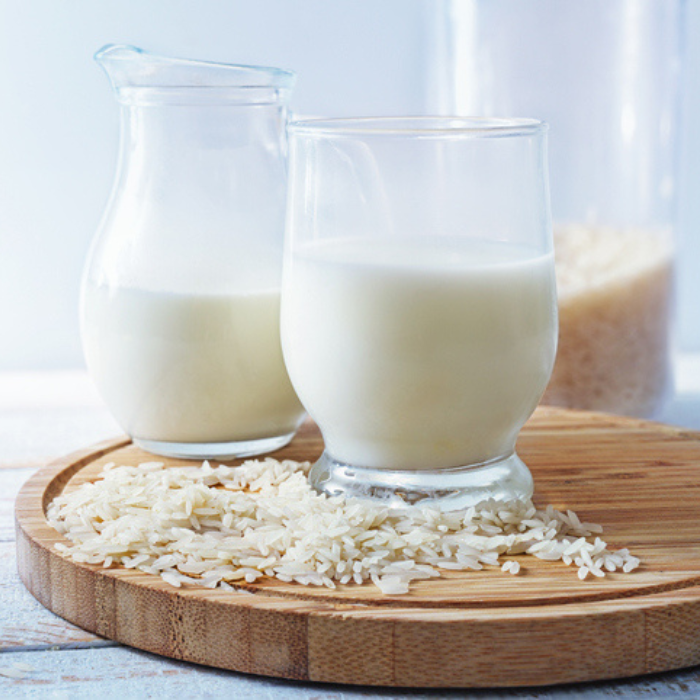
Rice Milk
One of the more obscure dairy-free alternatives, rice milk is a great option if you’re allergic to soy, dairy, or nuts. It has a similar amount of calories compared to cow’s milk (but a lot more sugar) and contains just 1 gram of protein per serving.
Commercial rice milk is typically manufactured using brown rice and brown rice syrup, and may be sweetened using sugar or sugar substitutes, and flavoured by common ingredients, such as vanilla.
Esquire’s pick: Macro Organic Rice Milk
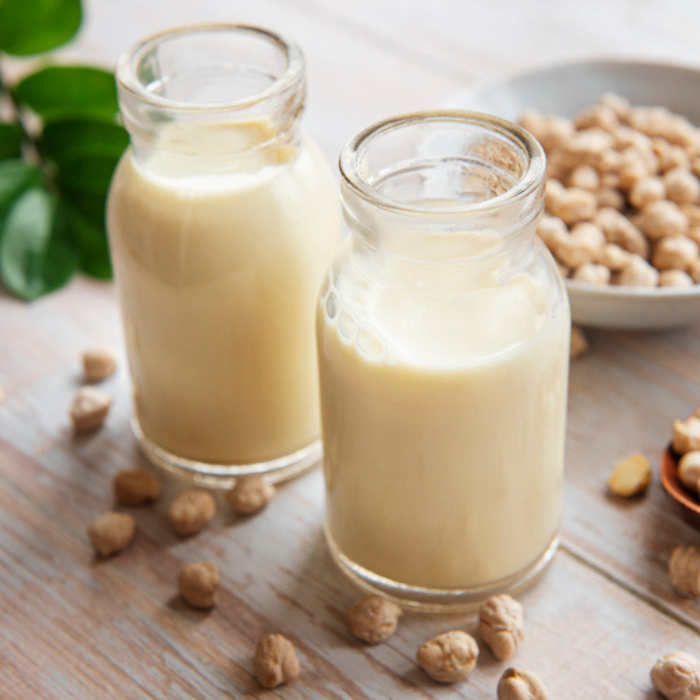
Pea Milk
Currently not widely available, pea milk is made using pea protein extracted from yellow peas (not the green garden variety), usually in combination with water, sunflower oil, micronutrients added for food fortification, thickeners, and phosphates. It’s actually a pretty good source of plant-based protein (up there with dairy milk, with 3.2g per 100ml) and is lower in calories compared to cow’s milk. The unsweetened version of pea milk actually tastes a little like almond milk, but more like coconut or cashew milk in texture.
Sadly pea protein doesn’t contain all the essential amino acids (like dairy and soy do).
Esquire’s pick: Australia’s Own Like Milk Unsweetened
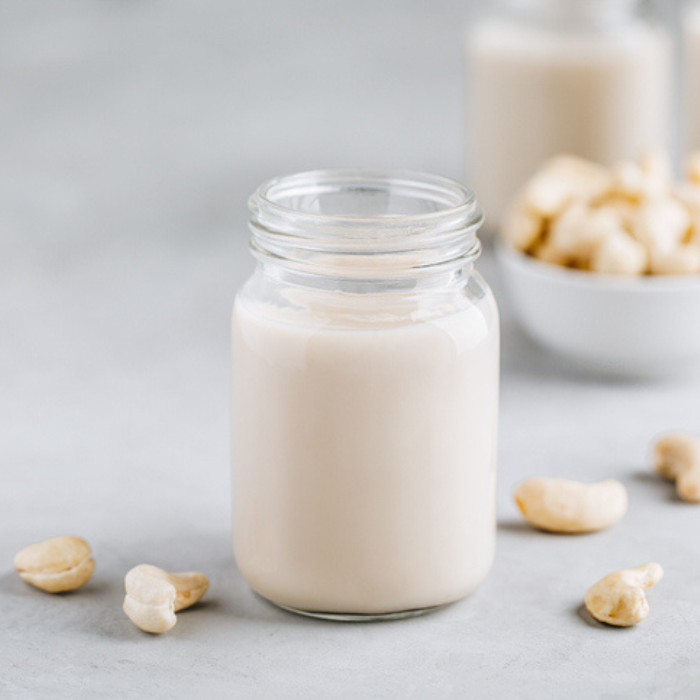
Cashew Milk
Made from whole cashews and water, cashew milk is loaded with heart-healthy unsaturated fats, protein, and several vitamins and minerals. It’s been said to help boost heart health, improve blood sugar control, promote eye health, and more, and boasts a silky texture which makes it perfect for drinking, coffee and cooking. One cup of unsweetened cashew milk approximately contains 25-50 calories, 2-4 grams of fat, and 1-2 grams of protein, which is a little lower in all categories when compared to something like oat milk.
Esquire’s pick: Inside Out Cashew Milk
Which plant milk is most like real milk?
Since most soy milk is fortified with calcium, it tends to be most similar to cow’s milk, however oat milk comes pretty close due to the taste and texture. Soy is also the most consumed plant-based alternative globally, dominating more than 50% of 2018 market share. The demand for soy milk comes from its creamy texture and slightly nutty flavour, making it an excellent cooking and baking ingredient.
Okay, well what is the healthiest non-dairy “milk” then?
That would also be soy milk.
Soy soy milks have 8g protein per cup, and 2 grams of fibre to boot. Add 450mg of calcium, 380mg of potassium, and 3µg of vitamin D and you’ve got a pretty good beverage. But fair warning with soymilk—and all alternative “milks,” really—in that any product labeled as “unsweetened” is your bet.
While cows milk contains 12 grams of sugar, it’s from lactose, a natural sugar. The distinction is important enough that many Nutrition Facts Panels distinguish between “added sugars” as a sub-line to “total sugars.”
“Milk” made from almonds, cashews, hemp, oats, and other various plants that aren’t soy often fall short on protein and can contain high amounts of added sugar.
Are plant-based milks healthier than cows?
According to a study by the American Society for Nutrition, it is clear that opting for plant-based milk is not a nutritionally equivalent 1:1 swap for dairy. The study looked at a total of 237 plant-based milk alternatives for their level of calcium, vitamin D, and protein. While 72% of the alternatives were fortified with calcium and vitamin D, few plant-based milk alternative products match dairy milk levels of protein.
“Animal-sourced foods like dairy foods provide high-quality protein and all of the essential amino acids, including glycine, methionine, leucine, and tryptophan,” says Keri Hackworth MS, RDN, LD, Director of Nutrition Affairs at the National Dairy Council.
Does oat milk give you bloating?
While oat milk is a nutritious and environmentally friendly choice for many, its fibre content can cause gas or bloating in some people.
To cut a long story short, oat milk contains a type of fibre called soluble fibre. This type of fibre is beneficial for overall digestive health but some individuals may find it difficult to digest it. That, paired with a carbohydrate called oligosaccharides which can be challenging for the body to break down, can lead to gas production in the gut.
It is important to note that not everyone will experience gas after consuming oat milk, though. Each individual’s digestive system is unique, and factors such as gut bacteria composition and enzyme production can influence how the body processes and digests certain foods.
Related:























